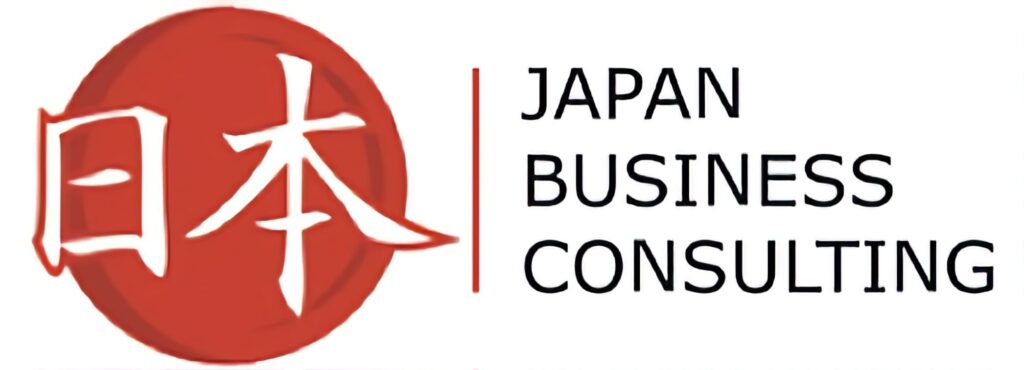How to effectively communicate with Japanese
Written by Erich Ahorner

While I was a high school exchange student, spending one year in a Japanese public school, I quickly found out that the education system in Japan is trying, but does not actually generate many fluent English speakers.
When doing business with Japan, you probably will be relying on your Japanese business contact to speak with you in English, assuming Japanese listeners are understanding a lot more than they actually are.
I remember (pre-pandemic), flying on one of the Japanese international airlines, and listening to the cabin crew when they switch to English. Often, these are young women who are recent graduates.
Listening to them, you could hear that Japan still has a long way to go to catch up with the rest of
Asia when it comes to mastering English.
This certainly has an impact when doing business in Japan. Because Japan looks like such a technologically advanced nation, our expectations for English skills are automatically high.
And due to the politeness of the culture, people won't tell you they couldn't understand.
That would imply that you were not clear enough or you spoke too quickly.
To avoid offending you, they will usually not show that they are not understanding.
They will say nothing. You imagine all is fine and, in fact, you probably even speed up your speech a bit. Therefore it is always good practice to check for understanding. Go back and summarize what you said and see if they were following it. Speak more slowly. You need to slow it right down and eliminate idioms, which are mostly difficult to understand for Japanese speakers of English.
I only discovered how much we use idioms when I was interpreting for US exporters trying to crack the Japanese market. So, to support better communication, remove idioms, sporting references, and any slang from your conversation.
For important meetings, always bring your own interpreter. They will be working for you and can help you to understand what is being said, what is not being said, and about how the members
of the buying team are reacting. When the other side provides the interpreter, all they will tell you is what they want you to know.
It is important to brief your interpreter very well to get the most value. While interpreters may be really good at languages, they are usually not business people. They may be Japanese and
they may speak great English, but they have probably not done a lot of business in your line of work. So, they need your help. Don't wait on the briefing with them or leave it until you are on
the way to the meeting.
In the West, we are getting more and more informal in business. Japan, however, is still a very formal country. Don't imagine that what works for you at home will work here.
When meeting online, always prepare a clear agenda and send it in advance. Even if it's a first time 'get to know meeting'. Include all the participants with job role in the agenda that will join from your side.
When meeting in person, always bring business cards, and make sure you have more
than you think you will need. You do not want to run out. The business card is a valuable tool for Japanese people to keep track of who they meet and to understand your rank inside the company.
If you have some knowledge of kanji, always check the Japanese side of the business card, because the English title and the Japanese title may be different.
Don't put their card in your shirt pocket or leave it lying around. Make sure you look at it carefully. If you don't have a business card holder, then stick it in your wallet so you are showing the
person that they are important to you.
Always hand your cards over one by one. Emphasize the personal touch.
I remember once when I was for my Japanese employer in a business meeting in a foreign country. The person I was meeting did have a business card, but upon entering the room they casually flicked it across the table to me. After living in Japan for such a long time, it was really a shock for me. Never forget: a persons business card is an extension of their 'face' and 'honor'.
When speaking Japanese, either go all the way in or leave it at a light level.
The Japanese side won't be expecting you to have any Japanese skills.
If you know some phrases, this might be considered cute, but nobody takes it seriously.
Some buyers prefer that you don't know much Japanese, because they feel more in control.They can speak freely amongst themselves.
Fluent speakers of Japanese can be seen as more of a problem, because it means you have peeled away a lot of their protective layers. If you know the language, then you know the culture, so they can't easily ignore your presence while talking internally.
You know about how things work, so they know they can't tell you a bunch of crap and get away
with it.
Save the humor for after-work drinks. Japanese meetings can be very formal and a bit heavy, so there is the temptation to lighten up the meeting with humor - the idea being that, if we use humor, we will somehow be able to become more friendly and closer to one another.
Some of my clients, coming from a more laid-back cultural background, found the rigid formality of meetings in Japan very uncomfortable.
They felt out of their comfort zone and in very alien territory. They immediately tried to use humor to break down the formality and get the atmosphere more relaxed and closer to something they
were more used to.
It is ok to be friendly, but remember: the Japanese side has absolutely no issue with formality.
Only you are having an issue with it. You are dealing with Japan, and that is how they do things.
So, be flexible and go with it.
Business is a serious affair in Japan. It doesn't usually happen on the go and in a relaxed framework. You don't have to lighten up the atmosphere, and you won't become instant buddies just because you are cracking some impenetrable jokes and engaging in light chitchat.
Leave all that for dinner and drinks at night with the clients.
This is when you will find the Japanese side really lightening up, sometimes in strong contrast to the atmosphere during the day. You might be surprised how much.
Do you want to improve your communication with Japanese business partners?
Schedule a call here:

Erich Ahorner
Erich Ahorner helps people enter the Japanese market and grow their businesses. He is an expert at helping people with market entry using online and offline methods and trying to break down necessary steps to make things simple to understand. If you're interested in growing your business or entering a new market to and increase sales then definitely reach out and request a free strategy session today.
Menu
